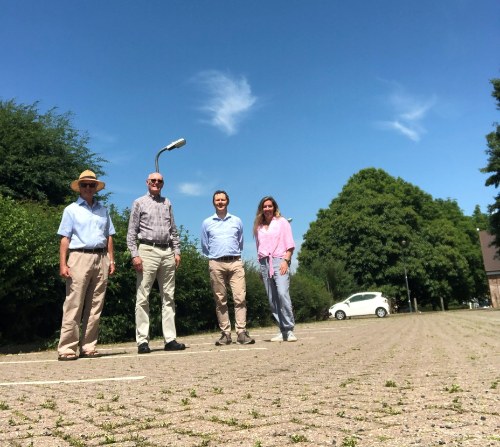About the project:
The first iteration of the scheme was the Rural Community Energy Fund (RCEF). This £10 million programme supported rural communities to develop renewable energy projects with a community benefit. It was delivered by the five Local Net Zero Hubs in the North East, North West, Midlands, South West, and South East on behalf of the Department for Business, Energy & Industrial Strategy (now Department for Energy Security and Net Zero) and the Department for Environment, Food & Rural Affairs.
Community groups could apply for two types of grant to accelerate their local energy projects:
- Stage 1 grants of up to £40,000 for a renewable energy feasibility study.
- Stage 2 grants of up to £100,000. The purpose of this to provide funding for business development and planning to support projects to reach a stage where they are investment-ready.
Key facts:
Liaised with 420 community groups
Supported 35 projects through Stage 1
Supported 7 projects through Stage 2
Lessons learnt
A review of the Rural Community Energy Fund highlighted that encouraging more peer-to-peer support, mentoring, and networking would be beneficial to help community energy groups in the Midlands and beyond to enable learnings from projects to be shared.
Community groups also had challenges with procuring consultants, so the development of a framework would reduce the time and risk in the delivery of local projects.
While decarbonisation was the focus of the Rural Community Energy Fund, there were many benefits experienced by community groups. These co-benefits should be captured to inform future funding opportunities.
Role of the Hub
The Midlands Net Zero Hub managed the Rural Community Energy Fund on behalf of the Department for Energy Security and Net Zero and Department for Environment, Food & Rural Affairs.
As the Local Net Zero Hubs are embedded in their regions, they we able to enhance uptake of the scheme and provide tailored support to the community groups who received funding. The core objectives of the Hubs were to:
- Promote economic growth and job creation and volunteering opportunities in rural areas to enable communities to access the economic benefits associated with renewable energy schemes;
- Support rural communities by helping them to maximise the income generating potential of renewable energy and putting this to work locally; and
- Increase the uptake of community and locally owned renewable energy, to support the Government’s targets for renewable energy and Net Zero.

